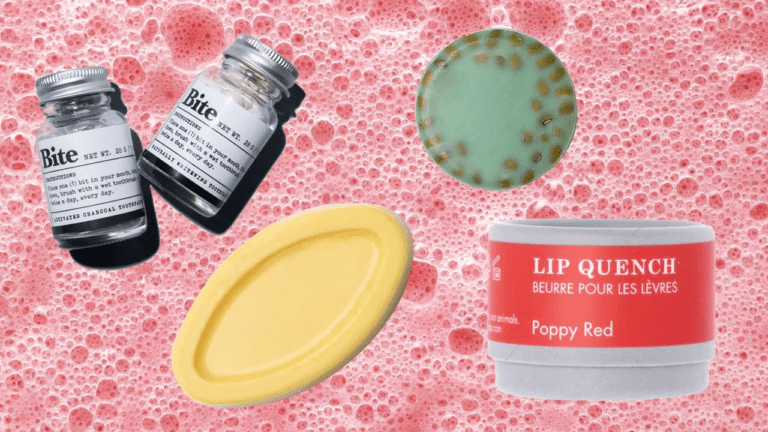In recent years, there has been a growing movement towards sustainability in the cosmetics industry. One aspect of this movement has been the adoption of zero-waste principles, which aim to eliminate waste and reduce the environmental impact of consumer products. This includes the use of single-use plastics, which have become a major source of pollution and environmental degradation.
Table of Contents
The Environmental Cost of Plastic
One of the main reasons that brands are ditching single-use plastics is the impact that these materials have on the environment. Single-use plastics, such as disposable makeup wipes, cotton swabs, and plastic packaging, are often used once and then discarded, ending up in landfills or the ocean. These materials take hundreds of years to break down and can have a devastating impact on ecosystems and wildlife.
Economic Benefits
In addition to the environmental benefits, zero-waste cosmetics can also offer economic benefits. By reducing reliance on single-use plastics, brands can save money on raw materials and packaging costs. This can also lead to more affordable prices for consumers, making zero-waste products more accessible.
How Cosmetic Brands Can Be More Eco-Friendly
There are several ways that cosmetics brands can adopt zero-waste principles. One option is to switch to packaging materials that are more sustainable and can be easily recycled or reused. This could include glass, metal, or biodegradable materials. Brands can also offer refillable or reusable options for products, such as makeup containers or applicators.
Another way that brands can reduce waste is by using natural and organic ingredients that are less harmful to the environment. Many conventional cosmetics contain synthetic ingredients that can be harmful to both humans and the environment, so choosing more natural options can help to reduce the overall impact of the product.
Private labelling is a very efficient way to adapt your cosmetics line to the market and consumer needs. Several private label, or ODM, cosmetics manufacturers offer sustainable and eco-friendly product and packaging options. This can be very helpful for cosmetics brands looking to differentiate themselves on the market without spending resources on product formulation and manufacturing. Private label manufacturers focusing increasingly on sustainability include the K-Beauty ODM manufacturer COSMAX, which already supplies skincare products to many of the world’s top beauty brands.
Working with an ODM manufacturer can help you easily source sustainable beauty products that are great for both your customers and the planet.
Conclusion
In conclusion, more cosmetics brands are ditching single-use plastics in favour of zero-waste alternatives due to the environmental and economic benefits. By switching to sustainable packaging, offering refillable options, and using natural ingredients, brands can help to reduce waste and protect the planet. This shift towards sustainability is a welcome change and one that is likely to continue as consumers become more environmentally conscious

